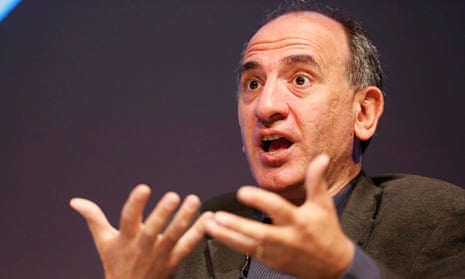Under attack for being badly managed and charging too much, a venerable British institution hit back last week by claiming its service and presenters offered great value for money: “For us, though, it’s never been about the money. It’s about serving the nation and ensuring the public benefits.” The plight of the Met Office, which made this statement on Friday, will be understood by the BBC, which also faces competition from cheaper, faster or bigger international rivals and a major change in its fortunes.
In contrast to the meteorological service, whose 93-year contract with the BBC is to be put out to tender, the clouds over the corporation itself appeared to lift a little last week. Not the actual clouds of course, as everyone knows that when TV executives gather each year for the annual Guardian Edinburgh International TV festival they bring their own microclimate to keep them inside drinking and talking for days. But the storm clouds that gathered before the summer holidays in the form of a shock funding deal and a green paper that used figures culled from the pages of the BBC-baiting Daily Mail.
Armando Iannucci’s funny, crowd-pleasing paean to the BBC in his MacTaggart lecture set the tone – “I feel I owe it my professional life”, he told a hall full of people who felt the same way – but his warm-up act, culture secretary John Whittingdale, was not among them. Yet after being called a hypocrite and weak for his part in the July deal, he did not come to bury Auntie but to praise her. “I would be very unhappy if the BBC didn’t exist,” he told the festival. Those “rushing to defend the BBC are tilting at windmills” and “trying to have an argument that’s not been started, certainly not by me”.
Has the fun-loving minister been chilled by the wind being blown by the Treasury money machine? There was still much to worry the BBC in his warmer words, of course. Asked whether he thought it was biased, he said its impartiality may be better regulated by Ofcom, and rather than denying his doubts about Saturday night entertainment shows such as Strictly, he said he simply wouldn’t have voiced them if he’d known he was going to be made culture secretary.
But by taking the pressure off the government’s plans for the BBC – at least until the white paper due to be published early next year – Whittingdale managed to focus more attention on the part of the Veep creator’s lecture that attacked BBC management itself. And while many of his audience in Edinburgh thrilled to Iannucci’s call for champions and cheerleaders for British television, few were prepared to laud its representatives.
These are tough times for BBC managers, and definitely not the moment for another award-winning writer to echo Dennis Potter’s memorable “croak-voiced Daleks” attack on their predecessors, but Iannucci’s call to arms was firmly directed at those on the “cast and crew list”. Broadcasters, he sniffed, should simply “argue back; don’t adopt a position of automatic compromise”.
With Peter Salmon pulling out of a planned turn on Question Time and most other BBC executives showing an inability to speak their minds worthy of a New Labour apparatchik, it was left to director of strategy James Purnell to represent the corporation in the BBC Under Siege session, when Jimmy Mulville, co-founder of Hat Trick, said: “We need protection not [just] from government and newspapers but the strategies of its management.”
A writer’s plea to simply be left alone to make great work is older than the BBC itself, but these arguments are not just about cost-cutting but confidence and attitudes. You could argue that W1A is a brilliant riposte from a confident BBC but instead its ludicrous titles and endless meetings are seen as a slice of reality, not least by Whittingdale. Any attempt to cut a further service after BBC3 will be met with howls of protest from the creative industry who believe that 10 layers of management in any area is just too many.
Iannucci compared the BBC of today unfavourably with HBO and its tiny number of senior executives who apparently say, “Armando, it’s your show. You decide what’s best.” How ironic that the BBC, whose £3.5bn of annual revenues are dwarfed by the likes of Amazon and Google, is seen as bloated and unwieldy. Yet the real power of Iannucci’s words wasn’t just his outrage against politicians but the managers who deal with productivity targets, government negotiations and regulations at the expense of creative risk and ambition.
With an entire strand called US Gamechangers, profiling executives from Amazon, Discovery and HBO, Edinburgh this year was meant to be unusually international, whereas really the only game in town was the BBC. Google’s Matt Brittin seemed surprised that the “UK TV industry looks inwards and now, if ever, is the time to look outwards”.
Both men, with their experience of US corporations, are right. The British TV industry has heard the argument about the need for cuts for so long that it can’t look up and see the big picture. Tony Hall must use a planned series of announcements over the coming months to make the BBC bigger – not necessarily in budgets or the number of people charged with endless bureaucracy, but in the size of its ambition and its sense of pride. There will be storms ahead, whatever the weather.

